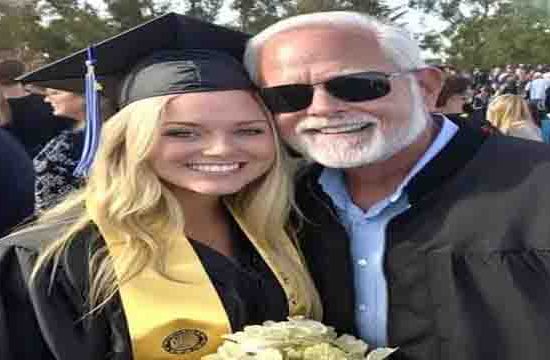Judy Belushi Pisano, who after the death of her husband, the actor and comedian John Belushi, from a drug overdose in 1982 became a fierce defender of his legacy at her home on the island of Martha’s Vineyard, in Massachusetts. She was 73.
Her son, Luke Pisano, said the cause was endometrial cancer.
Mr. Belushi, a member of the original cast of “Saturday Night Live” and a star of hit films like “National Lampoon’s Animal House” and “The Blues Brothers,” was among the best-known comic actors in the world when he was found dead in a Hollywood hotel.
Though it took weeks to determine the cause — from a mix of heroin and cocaine — the public immediately seized on Mr. Belushi’s death as a cautionary tale of excess in an era defined by it.
His reputation as a hard-partying drug addict was further underlined by Bob Woodward of The Washington Post in his book “Wired: The Short Life and Fast Times of John Belushi” (1984), which Ms. Pisano had initially authorized but later came to regret.
“The book is both unfair and inaccurate,” she told The Philadelphia Daily News in 1984. “To me the biggest lie is that it claims to be a portrait of John but it’s not. It’s only about drugs.”
In books, interviews, and a documentary film she pushed back with a different story. Her first book, “Samurai Widow” — the title is a reference to one of Mr. Belushi’s best-known characters on “Saturday Night Live” — was published in 1990; she and Tanner Colby later collaborated on an oral biography, “Belushi” (2005), and on a 2020 documentary of the same name, directed by R.J. Cutler.
Though all three were well received, Ms. Pisano still felt that the real John Belushi had been lost.
“It would be refreshing to have a story that actually celebrated John’s beautiful life: his courage to forge the life he dreamed in an unfamiliar landscape, his dedication to his craft, his epic friendships and loving temperament,” she told The Guardian in 2019.
His addiction, she said, was not a personal failure, as many assumed from Mr. Woodward’s account, but rather a disease, exacerbated by sudden fame, abysmal self-doubt and a celebrity culture in which extreme drug use was not only common but also expected of people like him.
“John always had an uneasiness in himself, and he was trying to fill it with something,” she told The Guardian. “And the drugs were a part of that — a big part of that.”
Judith Victoria Jacklin was born on Jan. 7, 1951, in Oak Park, Ill., a suburb of Chicago, and raised in nearby Wheaton, Ill. Her father, Les Jacklin, was a salesman for a tool and parts company, and her mother, Jean (Buchanan) Jacklin, was a secretary and homemaker.
She met Mr. Belushi during their senior year at Wheaton Central High School, and they quickly fell in love. She attended the University of Illinois; he attended the University of Wisconsin and the College of DuPage in Glen Ellyn, Ill. They both left college when Mr. Belushi’s budding comedy career took them to New York City, where he performed in National Lampoon stage and radio productions before being cast on “Saturday Night Live.”
Ms. Pisano worked as a producer for “The National Lampoon Radio Hour.” More important, she served as an emotional anchor for her husband, whose frenetic energy drove him to international stardom but also pushed him into addiction.
They both recognized his drug problems as a disease exacerbated by the ubiquity of cocaine in New York in the 1970s. After marrying in 1976, they spent long stretches of time on Martha’s Vineyard, and for a time Mr. Belushi was sober.
But by 1981 he was using again. Ms. Pisano gave him an ultimatum — either he quit using drugs or she’d leave — and he departed for Los Angeles, where he holed up in a bungalow at the Chateau Marmont, a hotel frequented by Hollywood stars. On the morning of March 5, 1982, he was found dead in a bedroom in the bungalow.
Mr. Belushi’s death set off a frenzy of tabloid coverage depicting him as a manic drug fiend, culminating with a June exposé in The National Enquirer in which Cathy Smith, a part-time musician, admitted that she had injected him with a deadly dose of cocaine and heroin, stopping his heart. She was later convicted of involuntary manslaughter. (Ms. Smith died in 2020.)
Ms. Pisano hoped that someone would correct the narrative. When Mr. Woodward reached out about writing Mr. Belushi’s story, she offered him access to her personal files and encouraged their famous friends to speak with him.
She considered the resulting book, “Wired,” a bitter betrayal, as did many of their friends, including Mr. Belushi’s fellow performers Dan Aykroyd and Steve Martin. She unsuccessfully sued Mr. Woodward and his publisher, Simon & Schuster, in an attempt to stop the book’s publication.
She then began recording her own interviews, which became the basis for the 2005 biography. She also wrote about her own struggles after Mr. Belushi’s death in “Samurai Widow.”
“He is like an astronaut whose destination is so far away that he will not return in my lifetime,” she wrote in “Samurai Widow.” “I will take the voyage one day, and he will have made my trip less frightening by his pioneering.”
After Mr. Belushi’s death, she settled on Martha’s Vineyard, where she worked for a variety of nonprofit organizations, including a local theater. She was a founder of the Second Chance Foundation, which helps people struggling with addiction.
She married Victor Pisano, a film producer, in 1990. They divorced in 2010. In addition to their son, she is survived by three daughters, Jessica, Rebecca and Vanessa Pisano; her siblings, Patricia Brewster, Pamela Jacklin and Robert Jacklin; and six grandchildren.
Mr. Belushi was not only an actor but also an accomplished musician; he sang with Mr. Aykroyd as the Blues Brothers and later played drums with the Dead Boys. Ms. Pisano had always wanted to play an instrument herself, but thought she didn’t have the talent.
Then, a few years ago, she picked up a ukulele and fell in love with it. During the last few months of her life, she wrote and recorded an album, “Best Days.” It will be released this year.









